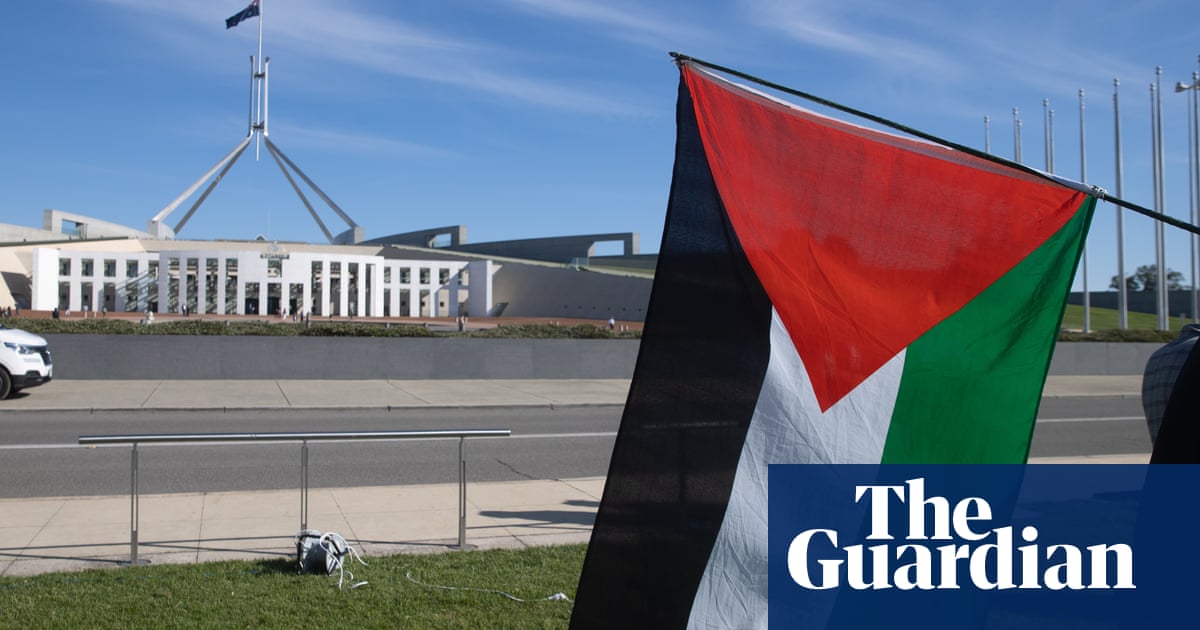Pressure is building within Labor’s grassroots membership for the government to impose sanctions on Israel over its blockade of much-needed food and aid intoGaza, with a key internal pro-Palestine group reporting “a surge in anger and frustration” among members that Australia has not voiced stronger condemnations.
Rank-and-file members in local ALP branches will debate a motion, drafted by the Labor Friends of Palestine group, calling on the Albanese government to sanction individuals and groups involved in forced displacement of Palestinians, targeting of hospitals and schools, and the killing ofaid workersandjournalists.
Sign up for Guardian Australia’s breaking news email
“There is a deep frustration that Australia has failed to move beyond words and take effective action under international law to protect the Palestinian people and hold Israel accountable,” said Peter Moss, of Labor Friends of Palestine.
“We are seeing a surge in anger and frustration among Labor members and the broader community. Labor Friends of Palestine is signing up a stream of new members horrified by the genocide. There are many Labor voters and supporters who cannot accept Australia’s failure to act effectively under international law to stop the starvation.”
The prime minister, Anthony Albanese, on Mondaylevelled his strongest criticism yet at Israelover its actions in Gaza, branding a weeks-long blockade of aid “an outrage” and calling the Israeli government’s “excuses” for stopping critical food and medical supplies “completely untenable”. He said he had last week told Israel’s president, Isaac Herzog, of Australia’s deep concern.
Labor MP and former cabinet minister Ed Husictold ABC radioon Tuesday Australia must “progress from talk to action”, including ramping up aid into Gaza, as well as call in Israel’s ambassador. He also praised the “strength” of Albanese’s comments.
Husic said the government should be “actively considering” targeted sanctions against Israel, a step he said was “probably under consideration”, and join international efforts from allied countries to “exert maximum international pressure to stop this blockade”.
Australialast week joined 22 other nations in condemning Israelover its decision to allow only limited aid into Gaza, adding voice to a joint statement also signed by the UK, Canada and New Zealand. The foreign minister, Penny Wong, alsocondemned recent “abhorrent and outrageous” commentsmade by Netanyahu government members and said the Israeli government “cannot allow the suffering” in Gaza to continue.
But Australia had not foreshadowed further targeted sanctions, as the UK, France and Canada didin a joint statement threatening to step up “concrete actions”.
At an event at Parliament House on Tuesday night withBritish-Australian doctor Mohammed Mustafawho has recently returned from a medical mission in Gaza, independent senator David Pocock urged the government to do more.
“If the horror unfolding in Gaza is not our country’s red line for stronger action, then I don’t know what is,” Pocock told the event, which
Mustafa also called for more action. “You don’t have to be a major player to feed children. You don’t have to be a major player to heal children,” Mustafa said, referencing quotes from government ministers that Australia was “not a major player” in the Middle East.
“We need healers in the Middle East, and Australia can be the healer. It can lead the world,” he told the event.
Alex Ryvchin, CEO of the Executive Council of Australian Jewry, was critical of Husic’s comments, calling for more attention to the release of Israeli hostages taken by Hamas.
“It is easy to talk about sanctioning Israel and hauling in the Ambassador, even though Prime Minister Albanese confirmed he already raised the issue with Israel’s President Herzog … Mr Husic should join us in calling for the immediate and unconditional surrender of Hamas to bring permanent relief to the people of Gaza,” he said.
Australia will attend a UN conference in mid-June on the recognition of Palestinian statehood. It is understood the government is awaiting further information before settling on whether Wong or another representative attends.
The government would not speculate on further sanctions. But government sources noted Albanese’s conversation with Herzog, and Wong’s meeting with Israeli foreign minister Gideon Saar, where concerns were raised.
Moss welcomed Albanese’s statement on Monday, but also called for more tangible responses, including supporting a humanitarian aid convoy into Gaza.
“At a minimum, Australia should immediately support the statement from the United Kingdom, France and Canada and prepare sanctions targeted at Israeli officials responsible for using starvation as a weapon of war,” he said.
A motion to be debated at numerous Labor branches, drafted by Labor Friends of Palestine, notes the government’s endorsement of joint statements but says members are “disappointed” the government did not join France, Canada and the UK in proposing stronger action.
The motion, which has not yet been passed by any branches, also calls for Labor to “redouble” efforts to bring about a ceasefire.
